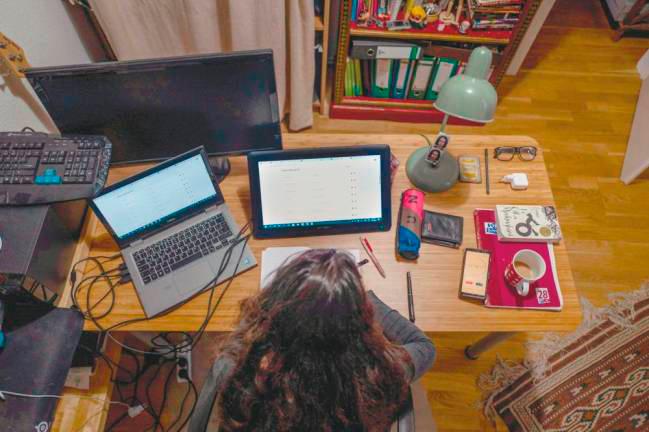PETALING JAYA: The work-from-home culture had been slow to catch on in Malaysia but everything changed with the Covid-19 pandemic.
It has now become the norm and companies and employees are being forced to review their priorities to ensure that it works.
Most would agree that businesses should supply the necessary tools and facilities, such as laptops and internet access, to enable their employees to function adequately from home.
On the other hand, employers may be reluctant to invest in such assets without a clear indication of how long the situation will last.
As general manager of corporate affairs at the National Tech Association of Malaysia Nor Azlina Ishak pointed out, it depends on the employee’s job specifications.
“Many companies now provide tech equipment to enable their employees to work remotely but there are some that require staff to bring their own devices,” she said.
Malaysian Trades Union Congress deputy president Mohd Effendy Abdul Ghani said if a company has the financial capability, it should provide items such as laptops to employees, as is already the case if the employee works in the office.
However, he agreed that both parties should come to a compromise that would see the employee use his own laptop or desktop and the company pays part of his electricity and internet bills.
Malaysian Employers Federation executive director Datuk Shamsuddin Bardin believes it should be discretionary, based on prevailing challenges.
“We must understand that a majority of businesses now have a cash flow problem.”
Many of these companies, especially the smaller ones, cannot afford that extra expenditure, he said.
“Covid-19 is something new that we have to face. Working from home could very well be the new norm (for the long term),” he added.
Shamsuddin said it was best to leave it to the government to come up with new policies on the issue.
The work-from-home concept is also not for everyone, especially employers. As Shamsuddin pointed out, the lack of supervision could prove to be a problem.
“For instance, one can easily get distracted by family members at home.”
He urged the government to introduce an awareness programme to help people understand and accept working from home as the norm and make provisions for its requirements.
“It can also be stressful for the employee and this can affect their mental health (thereby affecting their productivity),” he added.
Apart from equipment and facilities, there are other requirements that no employer would agree to offer.
Generally, a home is not designed to double up as an office, and to make it more conducive for work, the employee may have to dig into his own pocket to set up a proper workstation.
All there is now for employees is the tax exemption of up to RM5,000 for the purchase of ICT equipment if they require such devices to work from home.
Ironically, the incentive has not benefited the tech sector. In fact, according to a report by global research and advisory firm Gartner, the overall sale of tech devices such as personal computers, laptops, tablets and smartphones, will decline by 13.6% in 2020.









